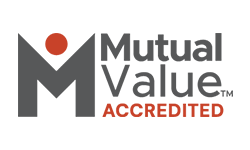Elder financial abuse is increasing, and instances of this crime are predicted to rise as our population ages. Those over the age of 50 are most at risk but it can happen to anyone – including you.
Relationships Australia define elder financial abuse as:
“The illegal, mismanagement or improper use of the older person’s finances. This includes stealing money or possessions, controlling their finances without permission, threats or coercion to gain power of attorney or pressuring them for early inheritances.”
This crime is not committed by a stranger, but by a person or people who are trusted by the older person. As such, instances of elder financial abuse can be difficult to talk about and are often unreported because victims are too frail or ashamed to report the fraud.
This type of abuse manifests in many ways and can take place over an extended time period.
Why does elder financial abuse occur?
Isolation and dependence on others: older people can become isolated and dependent on those they trust: family members, neighbours or carers, which makes them especially vulnerable. Others at high risk include those who have a physical or mental disability or a limited understanding of financial matters, perhaps due to language skills or cultural attitudes. Sadly, anyone who is reliant on others is at risk of financial abuse.
Inheritance impatience: this is the biggest cause of elder financial abuse and refers to family members pre-empting their inheritance to purchase goods using their elderly relative’s funds. Instances of this wrongful sense of entitlement are increasing, which has prompted a banking industry push for new legislation. According to the Australian Banking Association, six out of ten Australians have concerns that someone they know will become a victim of elder financial abuse.
How to protect yourself
- Make sure you have access to your own mail and do not leave any mail lying around unopened.
- Keep your account access, i.e. access card/s and PIN/s, secure. Do not write PINs or passwords down or store them in your wallet or around the house.
- Do not keep large amounts of cash at home.
- Ensure that your cheque books and legal documents, such as your Will and property deeds, are stored securely.
- Consolidate your accounts where possible so that it’s easier to spot any unusual activity.
- Review your bank statements regularly to make sure there are no unauthorised transactions.
- If you are considering a power of attorney, think about nominating more than one person and decide whether they will act separately or together.
- Do not sign any documents unless you fully understand them.
Get support
It is important to build strong relationships with people who can help you or your loved ones. Ideally, form your support team from a mix of contacts. For example, your GP, your accountant or financial adviser, a friend and a family member.
Need help?
If you are worried that you or your loved ones are vulnerable, seek help:
- Relationships Australia publish a list of state and territory assistance services, such as the NSW Elder Abuse Hotline 1800 628 221.
- Lifeline provides support 24 hours a day, 7 days a week for those in crisis.
- moneysmartgov.au publish a range of resources that can help you.
- The Australian Institute of Family Studies also publish a list of elder abuse support services.
At G&C Mutual Bank, our team has been trained to help identify the warning signs of financial abuse. Our members can contact us on 1300 364 400 (8.00am – 6.00pm weekdays) to discuss any concerns with their account. We’re ready to help you.
You may also find the article Elder financial abuse warning signs of interest.




